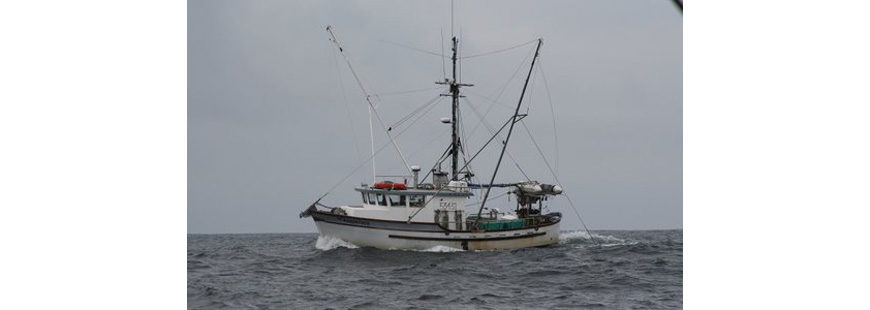This post is part of an ongoing series profiling the Network’s partners and their good work. Photo by Eric Jordan.
The Alaska Longline Fishermen’s Association (ALFA) is an alliance of small boat commercial fishermen committed to sustainable fisheries and thriving fishing communities. ALFA has represented hook and line fishermen for more than 40 years, working to improve best fishing practices and the economic viability of small boat fishing. Our members longline for halibut, sablefish and rockfish; many also troll, seine or gillnet for salmon or target shrimp and crab with pots. ALFA supports science-based fisheries management through collaborative research, advocacy, and innovation.
In the past year, ALFA has focused on creating local opportunity, working on national policy, and sharing our work in international forums. New partnerships have led to exciting breakthroughs and the breakthroughs have allowed a new level of visibility for both ALFA and small-scale fisheries.
To mention a few highlights: in 2018, Alaska led the country by fully integrating electronic monitoring (EM) into its catch accounting system, providing small boats with a viable alternative to federally mandated at-sea observers. With support from the National Fish and Wildlife Foundation, ALFA drove this success from a 2012 pilot program thru 2018 implementation, carefully choreographing a reluctant partnership of federal agencies, software companies, and the fishing industry. Over the six-year course of this effort, ALFA channeled over 1 million dollars in grant money into Alaska’s small boat fleet, using these funds to off-set costs and make EM affordable to boats too small to accommodate observers. ALFA program director Dan Falvey is the wizard behind the EM screen, making it all happen despite relentless attempts to derail, over-complicate, or “rewind” EM progress.
2018 also marked full launch of ALFA’s crewmember apprentice program. This program connects young people with commercial fishing jobs after preparing both the new crew and the skippers for success. The response underlined the need for the program: over 100 young people from all over the country applied! To meet the demand, ALFA quadrupled the number of host vessel operators trained to take apprentices in the spring of 2018, and trained six more in 2019 as the program continues to grow.
On the national policy front, ALFA fought hard alongside like-minded organizations to stop a recreational fishing industry campaign to reallocate resources from commercial to sport sectors and undermine conservation mandates in the Magnuson-Stevens Act. While this battle may never be over, the policy win secured late in 2018 demonstrates the power of the national coalitions ALFA has helped build. Magnuson-Stevens Act will remain an important focus in 2019, and we are now hopeful of an outcome that protects the fish, the fishing communities, and the public that depends on commercial fishermen to access great seafood.
Strong partnerships also allowed ALFA to fulfill another long-term goal: capitalization of a fisheries trust to support community-based fishermen in gaining access to Alaska’s fisheries. Ten years ago, ALFA helped launch the Alaska Sustainable Fisheries Trust, which has grown steadily toward achieving its mission ever since. In 2018, staff from The Nature Conservancy lent their expertise to growing and capitalizing the trust. Late in 2018, Catch Together and Craft3 joined the partnership, the Rasmuson Foundation lent their support and with this team in place, the trust is now ready to provide local fishermen with low risk, entry-level loans to purchase halibut and sablefish quota. Fishermen who receive loans will participate in ALFA’s Fishery Conservation Network , strengthening both stewardship and community.
Last year, ALFA staff and members were invited to share our success stories at three national or international forums. We presented at the 3rd World Small Scale Fisheries Congress in Thailand, a fishing community revitalization conference in Taiwan, and the National EM Conference in New Bedford. Sharing our success stories helps others, and at each event the ALFA staff also gained new insights, ideas and strategies to help ALFA strengthen local fisheries and safeguard the future for our oceans and fishing communities.
Without question, we will need all the wisdom, energy and insight that ALFA staff and fishermen bring to the many challenges we face, particularly with the added challenges of climate change and ocean acidification. The oceans are changing fast, with record high water temperatures logged each year. Fish stocks are moving, species composition is changing, and scientists are scrambling to understand and respond. Although time is running out on stopping climate change, it is not too late to slow the rate of change and allow fish, shellfish and other ocean inhabitants to adapt. In 2019, ALFA will be addressing ocean acidification and identifying strategies to protect the resource that sustains us. We will be looking to our members, board and staff to chart the course ahead. Onward to the next 40 years!


